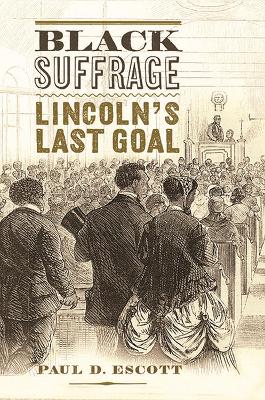Nation Divided
1 total work
As Escott reveals, there was in the spring of 1865 substantial and surprisingly general support for Black suffrage, most notably through the Republican Party, which had succeeded in linking the suffrage issue to the securing of the Union victory. This would be met with opposition, however, from Lincoln’s successor, Andrew Johnson, and, just as important, from a Democratic Party—including Northern Democrats—that had failed during the course of the war to shed its racism. The momentum for Black suffrage would be further threatened by conflicts within the Republican Party over the issue.
Based on extensive research into Republican and Democratic newspapers, magazines, speeches, and addresses, Escott’s latest book illuminates the vigorous national debates in the pivotal year of 1865 over extending the franchise to all previously enslaved men—crucial debates that have not yet been examined in full—revealing both the nature and significance of growing support for Black suffrage and the depth of white racism that was its greatest obstacle.
